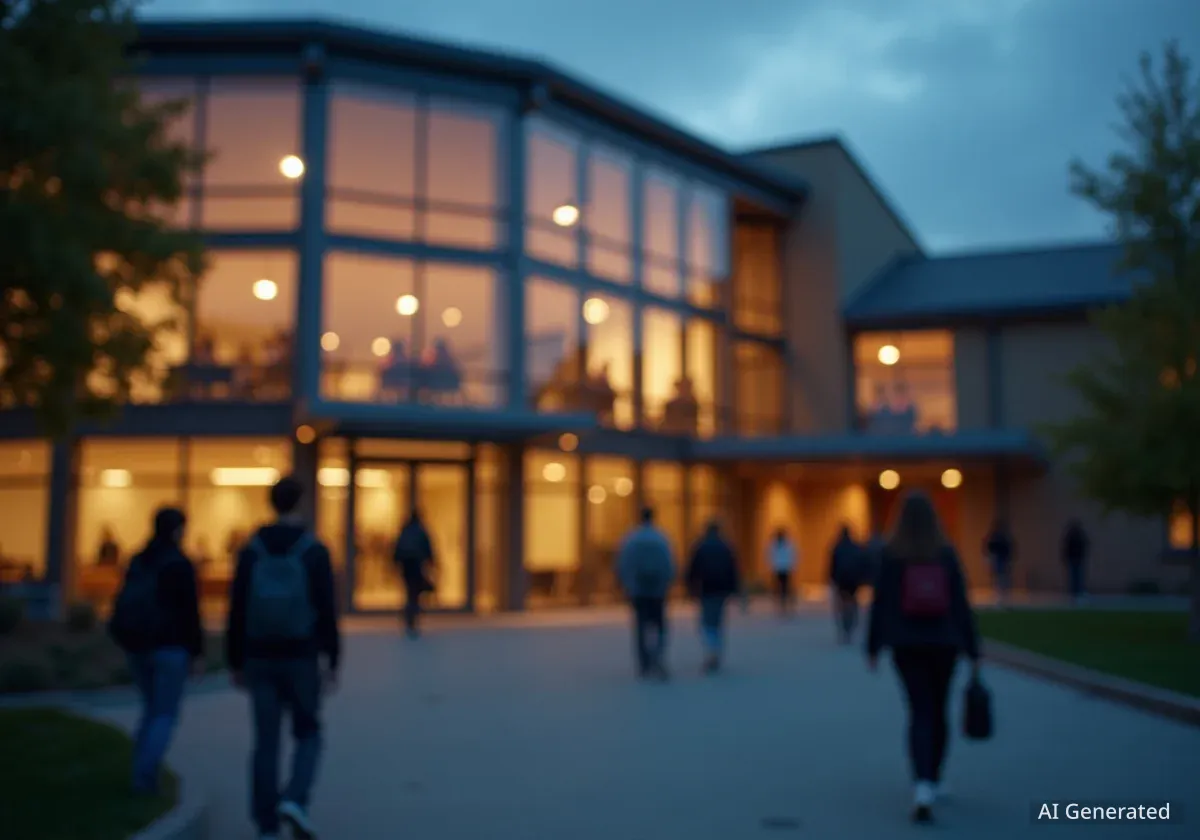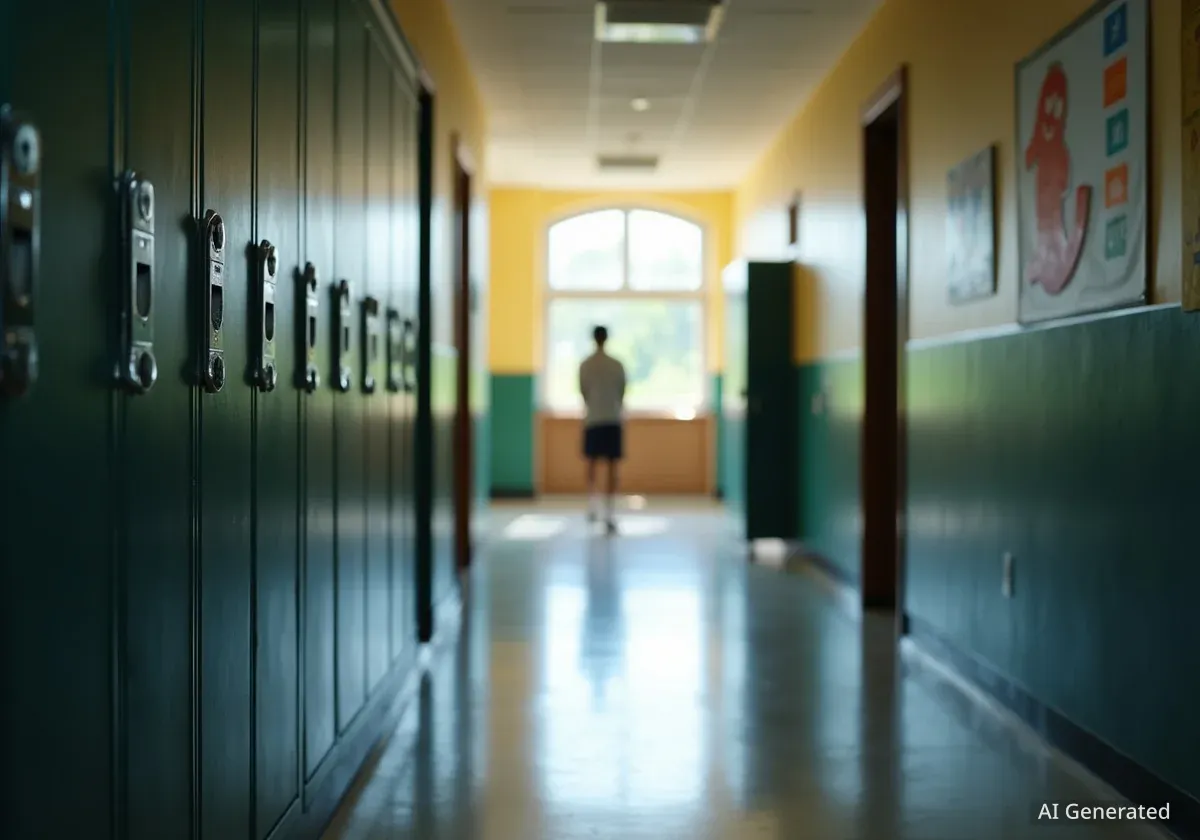A planned strike by faculty at Harrisburg Area Community College (HACC) has been called off following a tentative agreement reached with the college administration. The deal was announced just after midnight on Monday, November 17, preventing a walkout that was scheduled to begin in the morning.
The agreement comes after an intense period of negotiation, including 20 hours of bargaining this past week alone. Officials from the Harrisburg Area Community College Education Association (HACCEA), the union representing the faculty, confirmed the development, bringing a close to a negotiation process that has spanned several years.
Key Takeaways
- HACC faculty and the college reached a tentative agreement, averting a strike planned for Monday, November 17.
- The deal was secured after 20 hours of bargaining in the final week, capping off a multi-year negotiation process.
- The union's chief negotiator described the agreement as a fair compromise that prioritizes student stability.
- The tentative agreement must now be ratified by the full union membership to be finalized.
A Long Road to Resolution
The path to this agreement has been a lengthy one for both the faculty union and the college. According to HACCEA, negotiations have been ongoing for several years, marked by periods of intense discussion and public demonstrations of faculty concerns.
Earlier this month, faculty members held pickets at the Harrisburg campus on November 3 and 4 to draw attention to the stalled contract talks. The union had signaled its readiness to escalate its actions, setting a firm deadline for this past weekend to reach a deal or proceed with a full strike on Monday morning.
The breakthrough occurred in the final hours, avoiding widespread disruption for the college's student body. The last round of talks involved significant commitment from both negotiating teams, culminating in the late-night announcement.
The Final Push
The intensity of the final negotiations underscores the deep divisions that had to be overcome. The 20 hours of bargaining in the last week alone represent a concentrated effort to find common ground on key issues that have been points of contention for years. While the specific terms of the tentative agreement have not been made public, the resolution suggests movement on critical areas such as compensation, working conditions, and benefits.
The Broader Context of Academic Labor Disputes
Labor actions, including strikes and pickets, have become increasingly common in higher education across the United States. Faculty and staff at various colleges and universities have organized to demand better pay, improved job security, and a greater voice in institutional governance. These disputes often highlight the financial pressures facing educational institutions and the evolving nature of academic work.
A Compromise for Stability
In a statement released shortly after the deal was reached, the union's chief negotiator expressed relief and characterized the outcome as a balanced compromise.
"This has been a long arduous process, but we feel we have reached an agreement that is fair and respectful to the faculty while meeting the needs of the students," said Amy Withrow, HACCEA’s chief negotiator and an English professor at the college.
Withrow acknowledged that the agreement was the result of concessions from both sides. "While our Negotiation Team cannot say the agreement is perfect, I can say that it represents compromise by both sides and prioritizes stability and sustainability for our students," she added.
This emphasis on student welfare has been a recurring theme. A strike would have disrupted classes, potentially impacting academic progress and creating uncertainty for thousands of students across HACC's multiple campuses.
What is a Tentative Agreement?
In labor negotiations, a tentative agreement is a deal reached between the union's negotiating team and management. It is not final until the union's members vote to approve, or "ratify," it. If ratified, it becomes a legally binding contract. If rejected, both sides typically return to the bargaining table.
Next Steps: Ratification Process
With a tentative agreement in hand, the focus now shifts to the faculty members themselves. The deal must be presented to the entire HACCEA membership for a ratification vote. This process is a standard and crucial step in finalizing any collective bargaining agreement.
The union leadership will schedule meetings to explain the details of the proposed contract to its members. This will be followed by a formal vote where each member can decide whether to accept or reject the terms negotiated on their behalf.
Key details likely to be scrutinized by faculty include:
- Salary adjustments and pay scales.
- Healthcare and retirement benefits.
- Policies regarding workload and class sizes.
- Provisions for job security and academic freedom.
The outcome of the ratification vote will determine whether this long chapter of negotiations is truly closed. A successful vote would solidify the contract and provide a stable operational framework for the college and its faculty for the coming years.
Impact on the HACC Community
The avoidance of a strike is a significant development for the entire HACC community. For students, it means that classes will proceed as scheduled without interruption. The stability offered by the new agreement, should it be ratified, will allow students to continue their educational pursuits without the shadow of labor unrest.
For faculty, the tentative agreement represents a potential end to years of uncertainty. A ratified contract would provide clear terms of employment and allow them to focus fully on their teaching and academic responsibilities.
The college administration also stands to benefit from the resolution, as it can now move forward with strategic planning and institutional goals without the distraction of a major labor dispute. The compromise reached suggests a renewed basis for collaboration between the faculty and the administration, which is essential for the long-term health of any academic institution.





